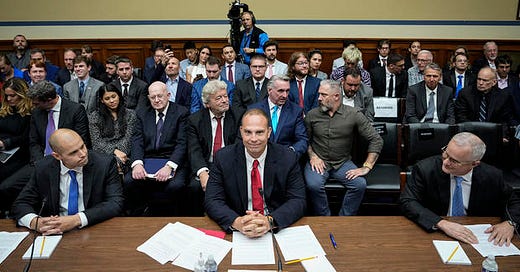One Of These Witnesses Is Not Like The Others
One of these stories is not quite the same
In the photo by Drew Angerer (Getty) above, we see Ryan Graves, executive director of Americans for Safe Aerospace, David Grusch, former National Reconnaissance Office Representative of Unidentified Anomalous Phenomena Task Force at the U.S. Department of Defense, and Retired Navy C…
Keep reading with a 7-day free trial
Subscribe to Osborne Ink to keep reading this post and get 7 days of free access to the full post archives.




